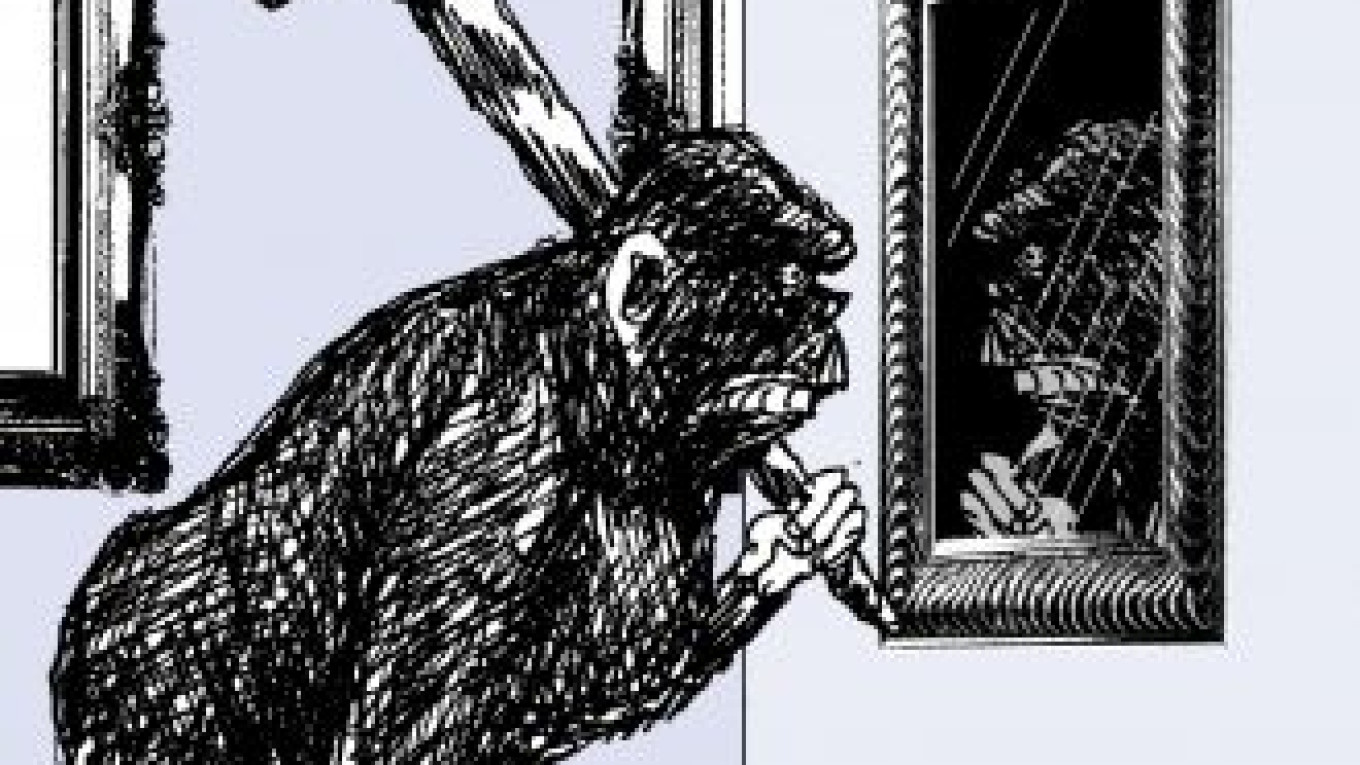After art curator Andrei Yerofeyev was convicted last week by Moscow’s Tagansky District Court of inciting religious hatred with his 2007 “Forbidden Art” exhibit, he said, “We did not lose. … It was the country that lost because the country has denounced its own art.” Much worse, however, the judge and prosecutor in the case showed the state’s clear affinity for the reactionary, extremist forces in Russia who are demanding strict censorship in arts and education. What’s more, the position taken by law enforcement agencies and courts violated the country’s basic constitutional guarantee of freedom of expression.
The criminal case against Yerofeyev and his associate Yury Samodurov were filed by outspoken conservative State Duma Deputy Alexander Chuyev and various religious groups and private individuals. The court ruled that Yerofeyev and Samodurov’s exhibit,? which featured artwork depicting Jesus as Mickey Mouse and Lenin, violated Article 282 of the Criminal Code, which prohibits “the incitement of national, racial or religious enmity and the abasement of human dignity based on religious affiliation.” As a result, the court fined Samodurov 200,000 rubles ($6,500) and Yerofeyev 150,000 rubles ($4,900).
The legal foundation for the conviction is completely groundless. In the indictment, Yerofeyev and Samodurov were charged with a willful intent to display a “humiliating and degrading attitude toward the Christian religion in general and to Orthodox Christianity in particular.” But the purpose and meaning of the exhibition was to show artists and the public works of art that had been rejected by other museums and galleries — hence, the exhibit’s title: “Forbidden Art.” Since investigators were unable to prove that the organizers intended to insult Christians and especially Orthodox Christians, they were forced to rely on statements made by “victims” who, after viewing the art, said they incurred “unbearable spiritual suffering.”
The court ignored evidence presented by the artists of the controversial works, including Ilya Kabakov, Alexander Kosolapov and Alexander Savko, who stated that there was no intent to insult the Christian faith. The court also ignored the views of art historians and museum and gallery workers who said the exhibits are works of contemporary art and are not intended to insult anyone or to incite hatred. Neither did the court consider statements addressed to President Dmitry Medvedev by Culture Minister Alexander Avdeyev and ombudsman Vladimir Lukin, who both supported the defendants’ right of artistic freedom.
The exhibit did not fall under any of the categories prohibited by Russian law, such as art that propagandizes war, Nazism, pornography or pedophilia. Moreover, the Constitution guarantees both freedom of artistic expression and the separation of church and state.
Nonetheless, the state strongly sided with the plaintiffs and the ultraconservative groups that are renowned for their extremist, nationalistic and often anti-Semitic views, including pro-
fascist rallies and marches at which Nazi swastikas are displayed.
Ironically, these groups are calling for the repeal of Article 282 of the Criminal Code. Even though they invoked this article when bringing charges against Yerofeyev and Samodurov, these groups understand very well that they are extremely vulnerable to the same criminal charges, which carry a jail term of up to five years, for their own extremist actions.
But for the time being, they are reveling in their victory in the “Forbidden Art” case. Championing a religious fundamentalism and extremism that is hostile to freedom and democracy and violates the Constitution, these groups have imposed their ultraconservative agenda on the Russian state. A dangerous legal precedent has been set for state persecution of artistic freedom and for government censorship — a disturbing throwback to the ideological and cultural dictatorship during the Soviet period.
Yerofeyev perhaps put it best when he said, “We are seeing the revival of fascist thinking.”
A Message from The Moscow Times:
Dear readers,
We are facing unprecedented challenges. Russia's Prosecutor General's Office has designated The Moscow Times as an "undesirable" organization, criminalizing our work and putting our staff at risk of prosecution. This follows our earlier unjust labeling as a "foreign agent."
These actions are direct attempts to silence independent journalism in Russia. The authorities claim our work "discredits the decisions of the Russian leadership." We see things differently: we strive to provide accurate, unbiased reporting on Russia.
We, the journalists of The Moscow Times, refuse to be silenced. But to continue our work, we need your help.
Your support, no matter how small, makes a world of difference. If you can, please support us monthly starting from just $2. It's quick to set up, and every contribution makes a significant impact.
By supporting The Moscow Times, you're defending open, independent journalism in the face of repression. Thank you for standing with us.
Remind me later.


